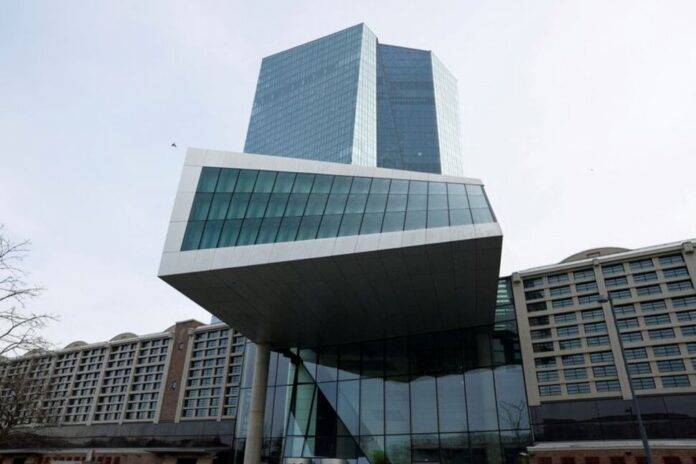Consumer expectations for euro-area inflation inched up in July, remaining above the European Central Bank’s 2% target as officials ponder whether to hike or hold interest rates next week, according to Bloomberg.
Expectations for the next 12 months failed to slow, staying at 3.4%, the ECB said Tuesday in its monthly survey. For three years ahead, they rose to 2.4% from 2.3%.
The results are the last major piece of price data before a Sept. 14 announcement that President Christine Lagarde has said will either extend or pause the ECB’s unprecedented campaign of monetary tightening.
Numbers last week showed underlying inflation — a metric officials have been watching keenly — slowed in August, though the headline number held steady. At 5.3%, both are significantly above the ECB’s 2% goal.
Money markets maintained tightening wagers, placing one-in-four odds on a rate increase to 4% next week while 15 basis points of hikes are priced by the year-end peak.
ECB Chief Economist Philip Lane offered a cautiously optimistic take on prices earlier Tuesday, saying slowing in goods and services gauges are welcome and that underlying pressures will keep weakening.
“We do expect to see this famous core inflation come down throughout the autumn,” he told Irish website the Currency. “I would underline the fact that there has been some easing in goods inflation and services inflation, which is a welcome development.”
Even so, ECB Governing Council member Pierre Wunsch signaled at the weekend that another increase in the deposit rate — currently 3.75% — may be warranted.
“I’m inclined to say we maybe need to do a little bit more,” the hawkish Belgian central bank governor said, adding that the “idea that we’ll have to come to a pause at a certain point can’t be excluded.”
With some policymakers fretting about the prospects for the euro zone’s 20-nation economy as rates rise, the ECB’s poll revealed consumers have become a touch more negative, too. They see gross domestic product shrinking by 0.7% over the next 12 months compared with 0.6% in June.
Separate data Tuesday showed the services sector, which has helped the euro area avoid a recession amid a manufacturing slump, was weaker than initially thought in August.
From here, “we’ll have to be very careful about how we consider future prospects for monetary policy,” Bank of Italy Governor Ignazio Visco said later in the day.


